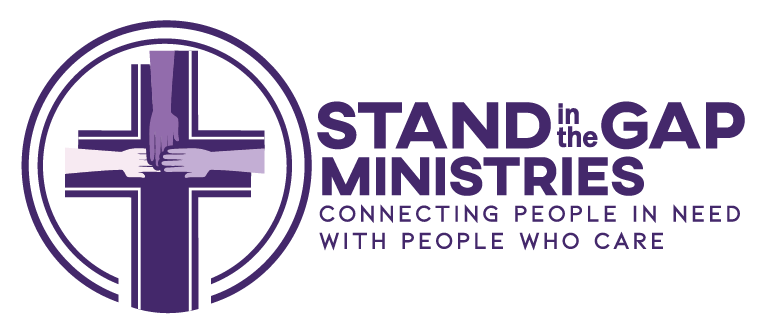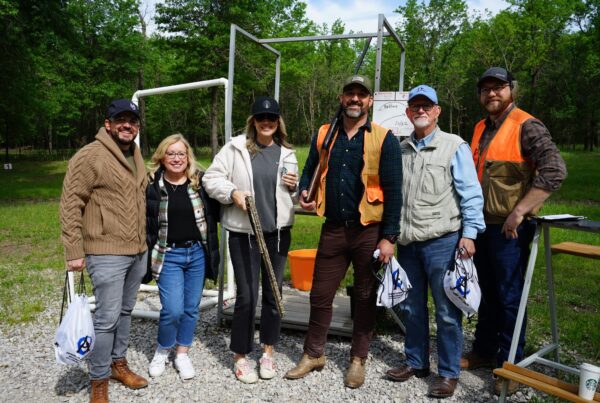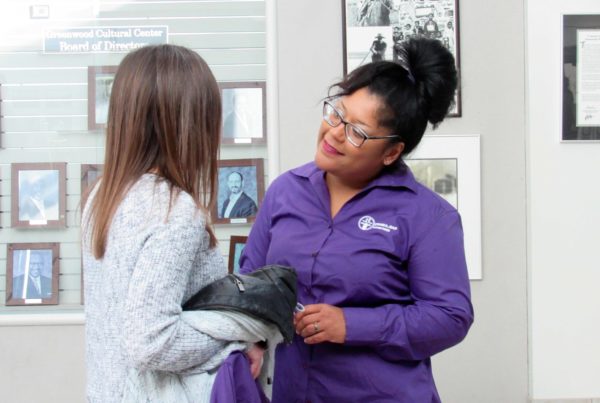As we celebrate Independence Day this week, let’s look at the radical freedom found in the Bible and what it means for people participating in Stand in the Gap’s Life Launch.
 by Becky Corbin
by Becky Corbin
Becky is the Life Launch OKC Program Manager. She connects young adults from hard places with small groups of trained, committed, adult volunteers who care.
THE "HARD PLACES"
Life Launch serves a demographic best defined as “young adults from hard places.” Those hard places are multifaceted and interconnected. They include:
- systemic poverty
- racial inequality
- a flawed incarceration system
- generational patterns of addiction
- broken families
- poor educational and economic opportunities
- a lack of resources and essential connections that are necessary in order to meet their basic needs
To see a young adult move from “hard places” to “thriving” would mean he or she has the basic tools necessary to meet physical, relational, and spiritual needs.
THE MOUNTAIN
Similar to the hard places that have shaped the lives of our young adults, thriving is also a multilayered web. We begin to build this web around them through stabilizing relationships.
Some aspects of thriving that we often see missing in the lives of our young adults are:
- access to safe housing
- stable employment
- consistent transportation
- healthy relationships
- enough food to make it through the day
- the opportunity to better their circumstances through education
The relationships we foster through Life Launch are a piece of this puzzle. But in order to become independent and thriving, these young adults are faced with a mountain to climb.
I write this as someone privileged to be an observer rather than a member of this group. I was born somewhere on the side of this mountain. Resources were readily provided to me. I had the means to fill my stomach, attend school, and always had a safe place to sleep. So to reach a place of stability and culturally defined success, I have had little climbing to do without readily available support.
”But for many of our young adults, reaching a place of independence as a healthy member of society means not only climbing from the base of this mountain, but first digging themselves out of the ground.
They were born into broken social systems and have been buried by difficult circumstances. And now they have been crushed with little hope to improve their situation. The promise of independence and autonomy is taken from them by the difficult circumstances and lack of resources.
Typically, the mountain is too high for them to climb without the help of others or some greater interruption of these cycles.
BIBLICAL FREEDOM
In a country that celebrates and pursues individual freedom, it is easy to settle into a mindset of complete autonomy. We can all fall into an “arms race” for resources to establish the independent well-being of ourselves or our families.
But I would argue that the Bible proposes a radically different picture of freedom. Biblical freedom is found in laying yourself down, that you may inherit the life of Jesus and the hope of his Kingdom built on love and sacrifice.
”True freedom as modeled by Jesus is not the gathering of resources, but the act of laying them down.
Rather than standing atop our own mountains, I believe we are called to steward our own place with humility and freely give the resources that helped us succeed. In this way, we serve others, and see that they too reach a place of thriving.
In order to see independence and autonomy spread to those in our communities, we must lay aside what accolades we stand on. We must climb down from our mountains to show others the way. And we must lend a helping hand through the rocky stretches.
As we seek the end of generational cycles of brokenness and equip those in need with necessary resources, freedom is celebrated and expanded.
The independence we desire for our young adults is counterintuitive to the solitary concepts most associated with freedom and autonomy- it does not look like a man alone atop a mountain. Rather, the independence we desire is a smaller part of what human thriving looks like, which is both unique for each of our young adults and heavily reliant upon the relational investment of those around them.
In order to experience true independence, our young adults need the stable relational support of safe, unpaid adults.
To see freedom progress and witness human flourishing, I would argue that we need each other and the laid-down-love Jesus modeled for us. Scott Erickson, an artist and author, best summarizes these concepts in the statement, “Love’s ultimate goal is the freedom of self-emptying… the capacity to give up one’s own interest for the benefit of others”.
”In celebration of our Independence Day, I ask that you consider how your independence is serving those around you. Has your thriving brought about the thriving of others?



